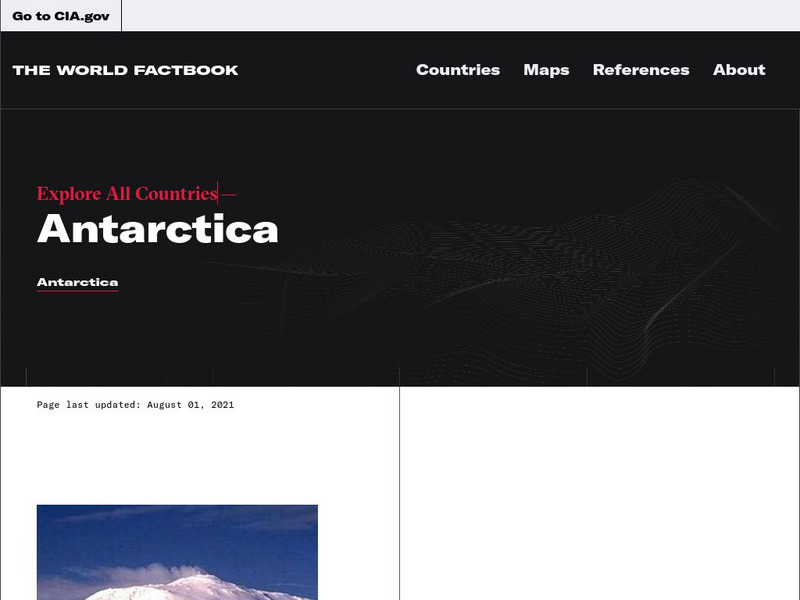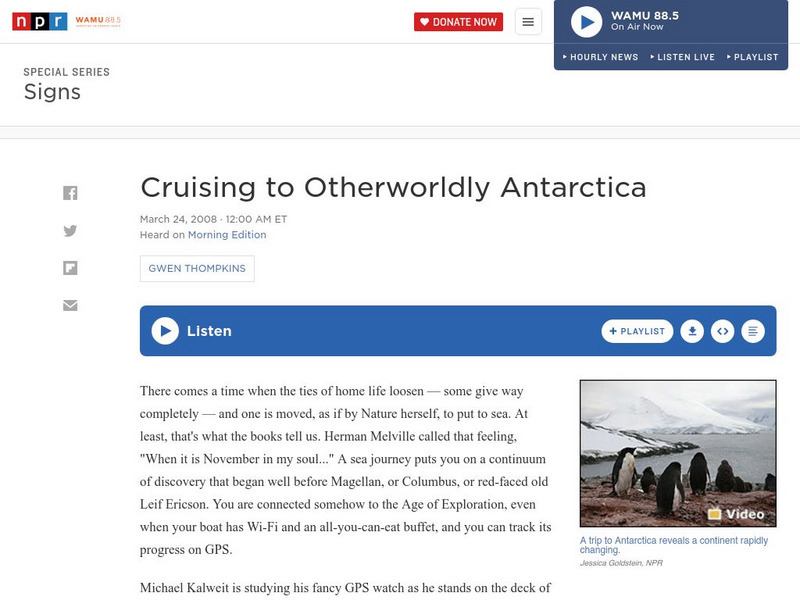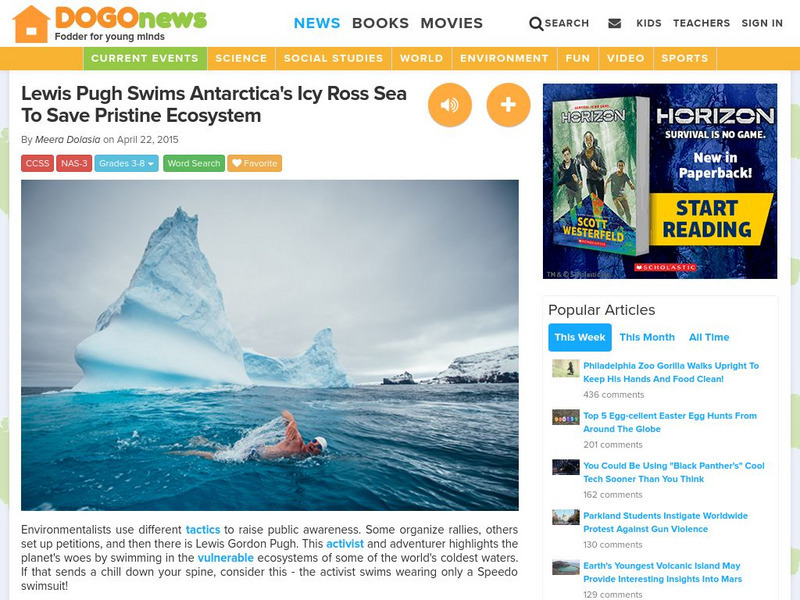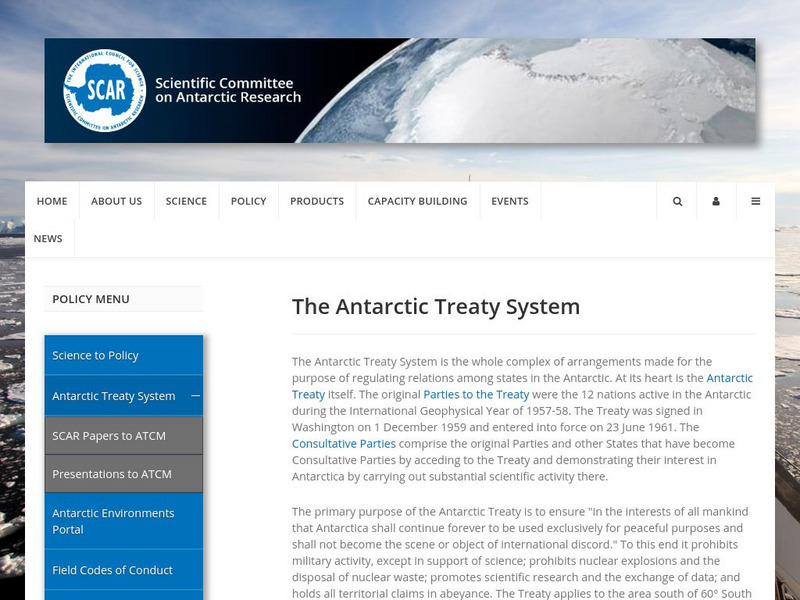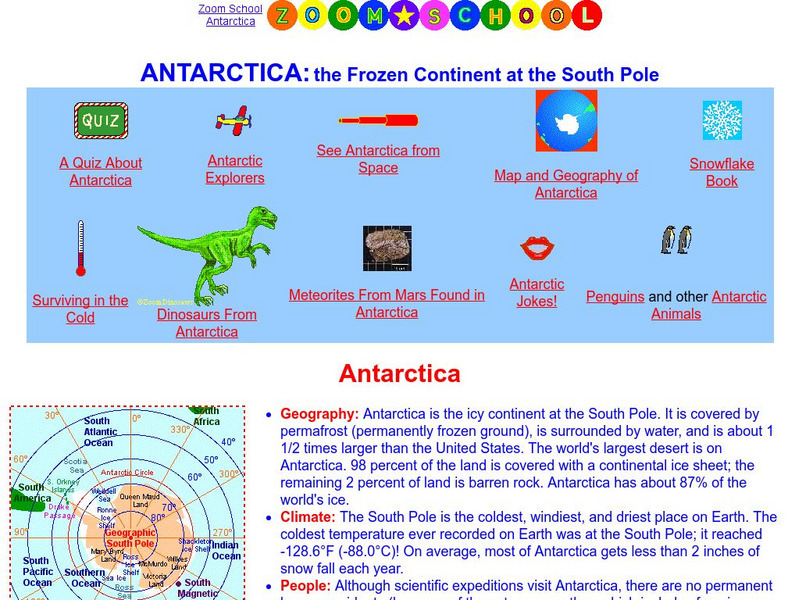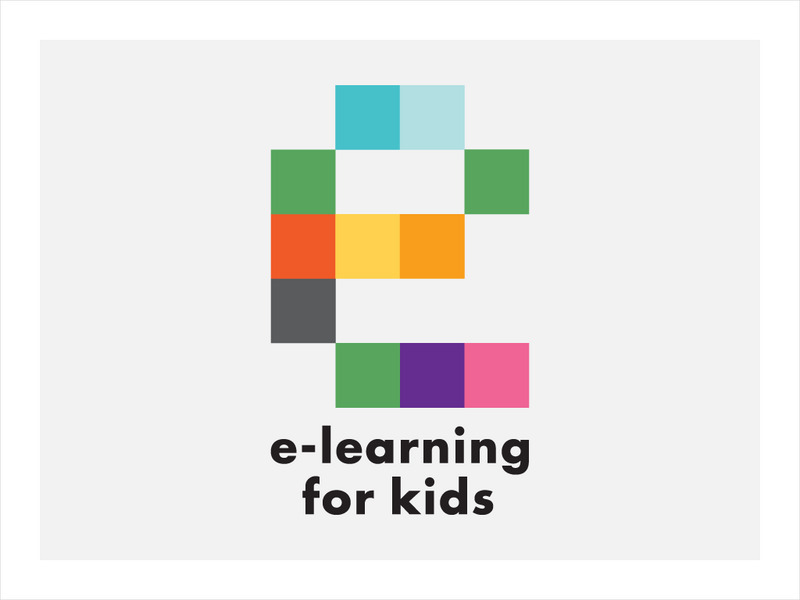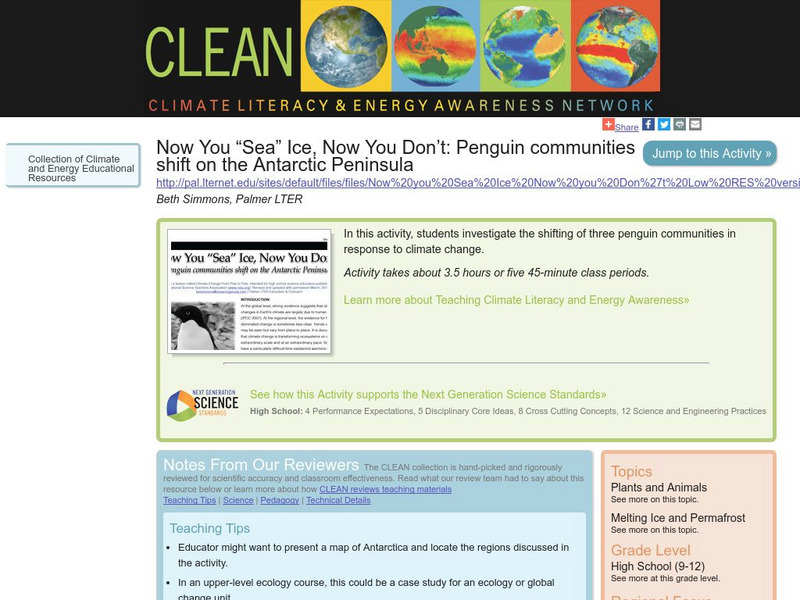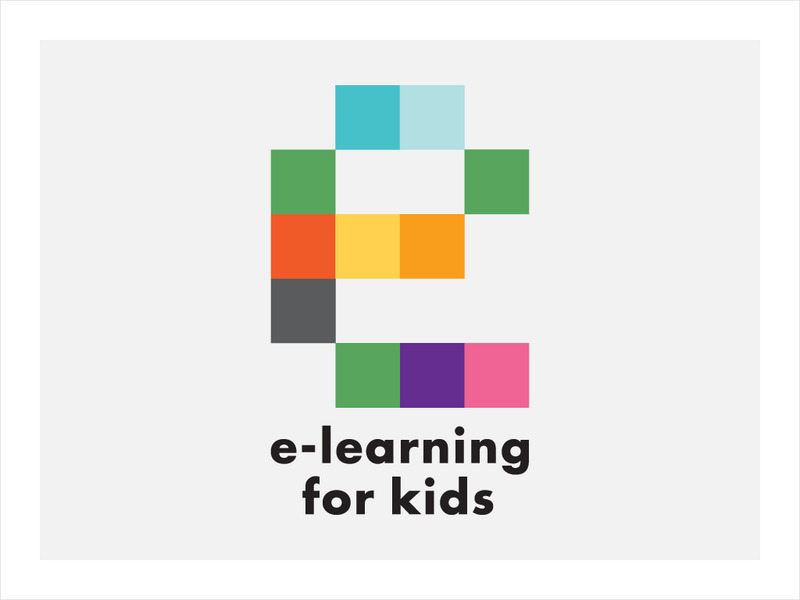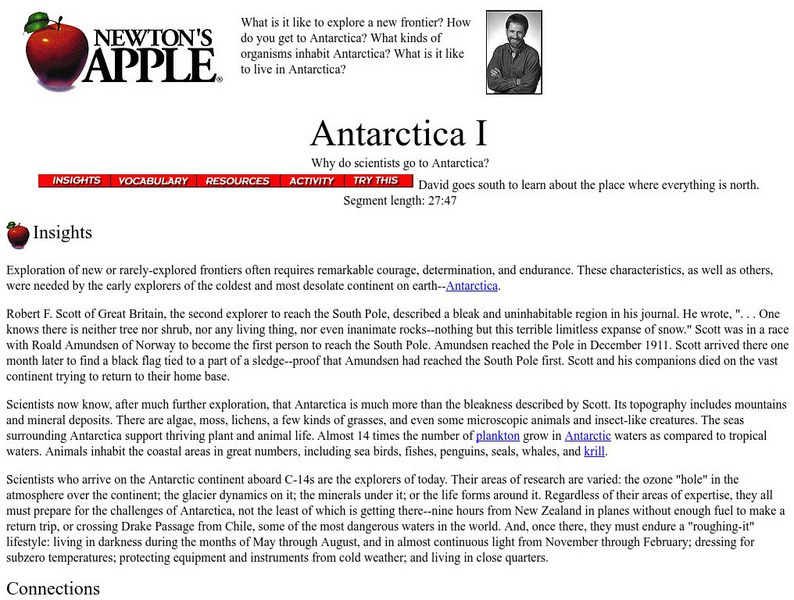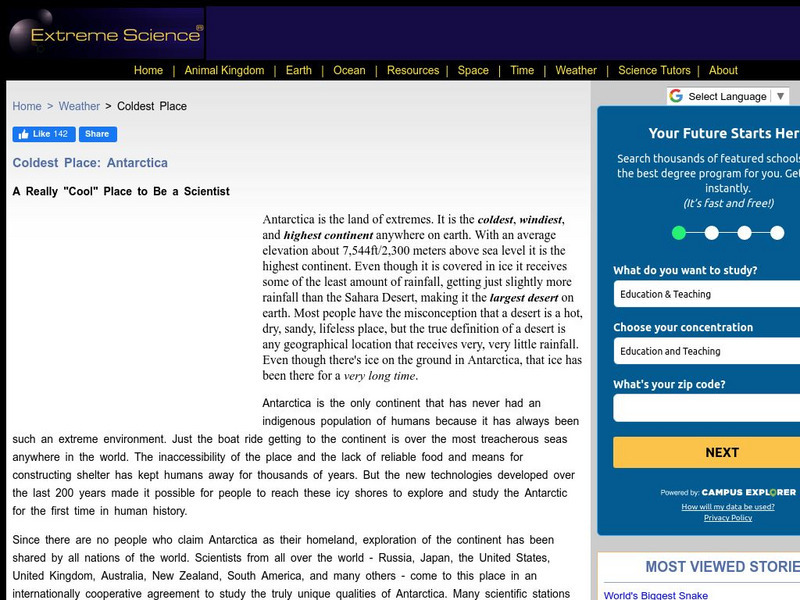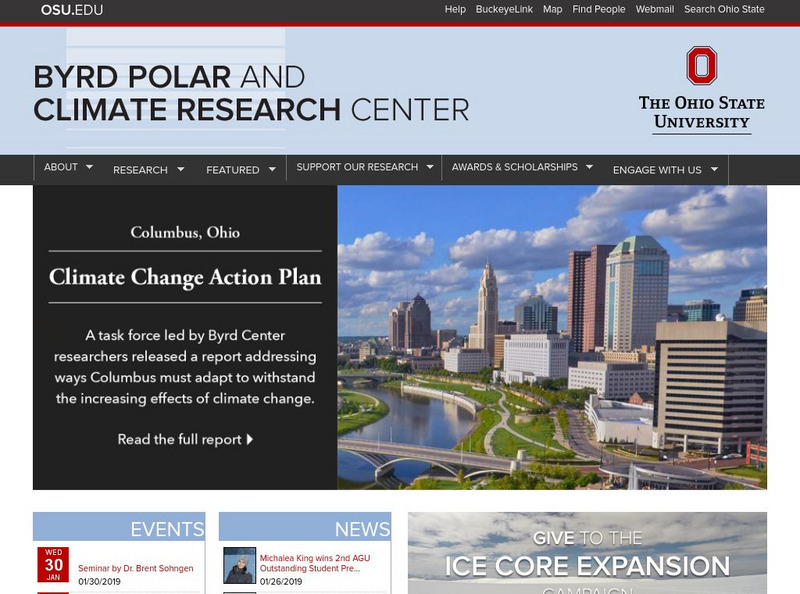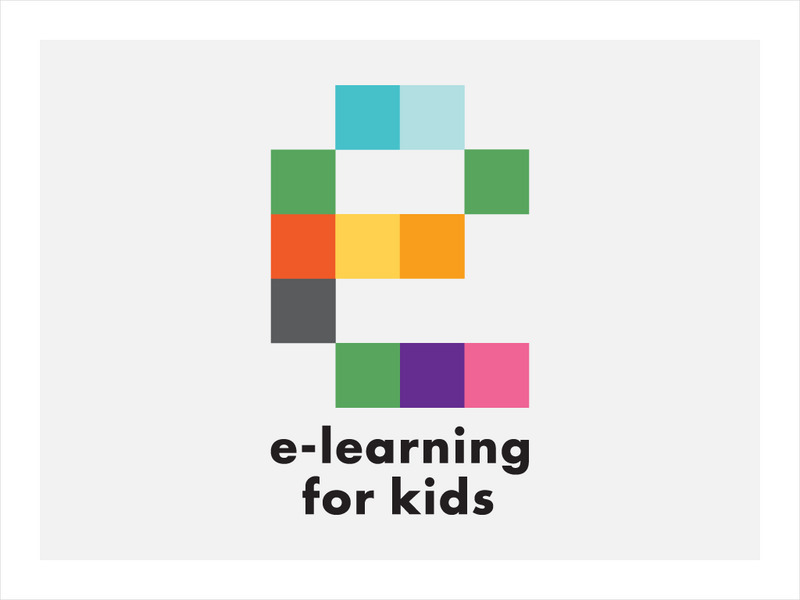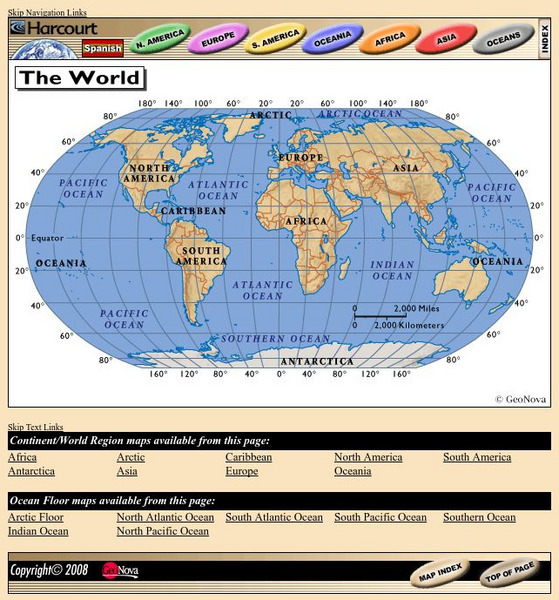Hi, what do you want to do?
Central Intelligence Agency
Cia: World Factbook: Antarctica
This is a great resource for general information on Antarctica. It includes geography, population, government, economy, communications, transportation, military, and transnational issues.
NPR: National Public Radio
Npr: Cruising to Antarctica
NPR presents a pictorial essay on Antarctica and discusses why tourism is on the rise.
CommonLit
Common Lit: What Is Antarctica?
CommonLit.org is a wonderful resource to use in a Language Arts classroom. Each story or article is accompanied by guided reading questions, assessment questions, and discussion questions. In addition, students can click on words to see...
DOGO Media
Dogo News: Lewis Pugh Swims Antarctica's Icy Ross Sea
Article reports on activist Lewis Pugh's daring swims across the Ross Sea to bring awareness to the need for a marine protection area in the pristine region. Includes video.
Other
Scientific Committee on Antarctic Research: Antarctic Treaty System
The Antarctic Treaty was first signed in 1959 by the twelve nations that were conducting scientific research in the Antarctic. Its purpose was to regulate their activities and relations with each other. Since then, other nations have...
Enchanted Learning
Enchanted Learning: Zoom School: Antarctica
Learn some amazing facts about the coolest place on Earth, Antarctica. Explore a map and geography, science, animals, explorers, jokes, and more. Also contains a quiz to take.
British Antarctic Survey
British Antarctic Survey: About Antarctica
Official site of the British Antarctic Survey, this page offers info. on various aspects of Antarctica's physical geography, as well as wildlife, weather & other related topics.
E-learning for Kids
E Learning for Kids: Science: Antarctica: How Can We Hear Sounds?
James lives on Antarctica and loves the unique sounds he hears there. He is curious to know how it is possible that we hear sounds. Join him to help figure this out.
E-learning for Kids
E Learning for Kids: Science: Antarctica: How Are Sounds Useful to Us?
Paul is a researcher on Antarctica. The topic of his research is sounds. Identify which objects make sounds, and learn to recognize different sounds.
National Geographic
National Geographic: Crittercam Chronicles: Antarctica
Play a game where you explore three scenes in Antarctica and find different types of animals: south polar skua, crabeater seal, emperor penguin, ice fish, leopard seal, killer whale, krill, adelie penguin, and weddell seal. After you...
University of Chicago
Cara Virtual Tour: Welcome to Antarctica!
The Center for Astrophysical Research in Antarctica takes you on a tour of New Zealand, McMurdo Station, and the Amundsen-Scott South Pole Research Station, all part of a virtual tour of Antarctica. Lots of pictures and a relaxed style...
Climate Literacy
Clean: Penguin Communities Shift on the Antarctic Peninsula
This multi-lesson activity investigates the shifting of three penguin communities in Antarctica in response to climate change.
NASA
Nasa: Polar Ice and Its Possible Effects on the Earth
This article describes the effects of polar ice caps on the Earth and offers explanations as to the possible effects of polar ice melting on sea level and temperature.
Gulf of Maine Research Institute
Gulf of Maine Aquarium: Antarctica: Creating Plankton
A mini-lesson on plankton. After going over the characteristics of plankton, print out the worksheet and have students create there own plankton. A fun project to end a great unit.
E-learning for Kids
E Learning for Kids: Antarctica Penguins: How Does the Moon Influence the Tide?
This lesson explains how the moon affects tides on Earth and about the different types of tides.
Michigan Reach Out
Twin Cities Public Television: Antarctica I
After learning why scientists go to Antarctica, students plan and go on an expedition of an "unexplored" territory themselves. Planning guide for the expedition is included.
Ducksters
Ducksters: Geography for Kids: Antarctica
Learn about the geography of Antarctica. Maps, natural resources, and facts about this continent are on this site.
Extreme Science
Extreme Science: Coldest Place on Earth: Antarctica
A description of the extreme climate of the Antarctica, the coldest place on Earth, as well as the windiest. It is also the highest continent, and considered to be a desert as it has little rainfall. Includes information about the...
Other
U.s. Antarctic Program
This government site delves into the research of all aspects of the Antarctic region including its ecosystems, its impact on the climate, and aerospace.
Ohio State University
Ohio State University: Byrd Polar Research Center
Visit the Byrd Polar Research Center site and find out about the research currently going on in Antarctica. Click on Polar Pointers to find links to other sites with information about the Antarctic.
Other
Ecology
Humans are having a negative effect on the ecology of Antarctica. Get the facts on krill harvesting, global warming, and ozone depletion.
British Antarctic Survey
British Antarctic Survey: The Antarctic Treaty Explained
A clear explanation of the Antarctic Treaty, a unique international agreement between scientists. Outlines the gist of the fourteen articles in the original agreement, signed in 1959 by twelve nations. Many more have signed on since. The...
E-learning for Kids
E Learning for Kids: Science: Nova Zembla: Why Do We Need Plants?
This module explores how plants help animals survive. Bobby is a scientist on Antarctica. He discovers many amazing uses of plants. Join him and help him learn.
Houghton Mifflin Harcourt
Harcourt: School Publishers: World Atlas: The World
Provides continent, country, and ocean floor maps from all over the world. Click on a continent's name to access the detailed maps which also include statistical facts on each available country.





